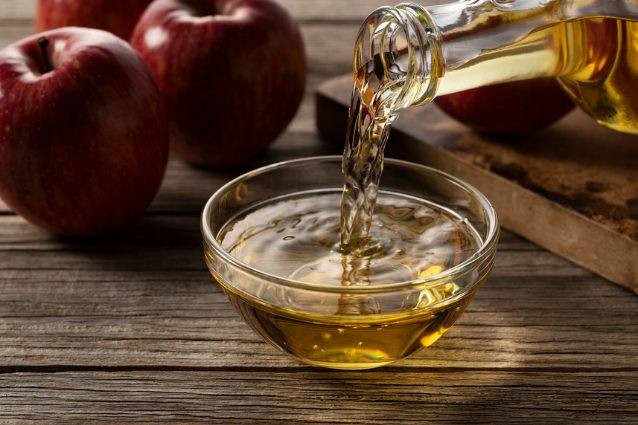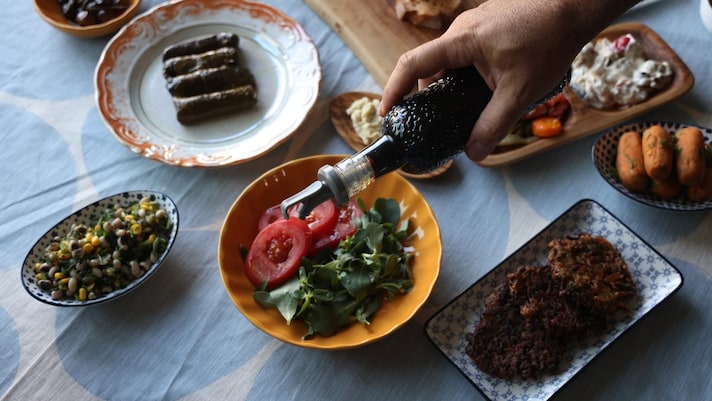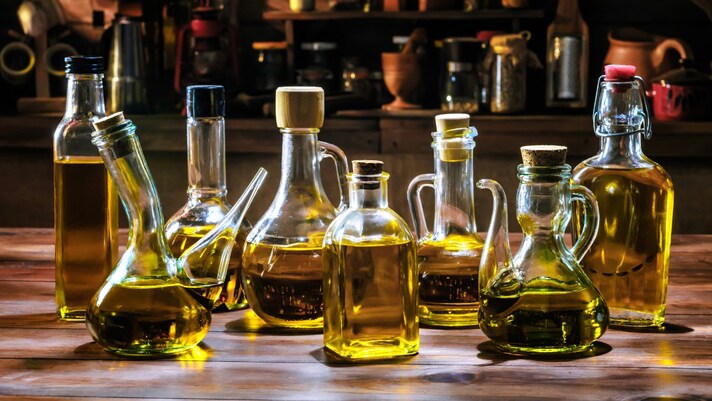How Long Does Vinegar Last After Opening? How to Store It for Best Quality
Vinegar is a long-lasting pantry staple, but its quality can decline over time if not stored properly. While most types, like white and apple cider vinegar, can last for years, flavored vinegars may spoil faster. Proper storage—keeping vinegar in a cool, dark place and sealing it tightly—ensures it retains its flavor and acidity for longer.
;Resize,width=742;)
Vinegar is a versatile and essential ingredient in many kitchens, from salad dressings to marinades and even as a natural cleaning agent. But how long does vinegar last once opened, and what’s the best way to store it to maintain its quality? Let’s break down everything you need to know about vinegar’s shelf life and proper storage.
Does Vinegar Expire?
While vinegar is a shelf-stable product with an almost indefinite shelf life, it can lose its potency over time. Most vinegars, such as white, apple cider, and red wine vinegar, can last for years when stored properly. However, flavored vinegars or infused varieties may lose their flavor or deteriorate faster.
How Long Does Vinegar Last After Opening?
After opening a bottle of vinegar, its shelf life can be affected by how it’s stored. While it may not spoil in the traditional sense, it can become less flavorful and aromatic as it loses its acidity.
- White Vinegar: It can last indefinitely if stored in a cool, dry place, away from sunlight.
- Apple Cider Vinegar: Similar to white vinegar, apple cider vinegar has a long shelf life and can remain fresh for up to 2-3 years after opening if stored correctly.
- Balsamic Vinegar: While it may still be safe to use for several years, balsamic vinegar can lose its complexity and richness after 3-5 years of opening, especially if it’s not stored in ideal conditions.

How to Tell If Vinegar Has Gone Bad
Unlike other condiments or liquids, vinegar is self-preserving due to its high acid content, so it doesn’t go bad in the traditional sense. However, there are a few signs that may indicate the vinegar’s quality has deteriorated:
- Smell: A sharp, pungent smell is normal for vinegar, but if it starts to develop off or musty odors, it may be losing its flavor.
- Cloudiness or Sediment: Cloudiness or sediment may form in some types of vinegar, particularly apple cider vinegar. While it’s not harmful, it can affect the flavor. It’s important to note that mother of vinegar (the cloudy substance) in apple cider vinegar is not a sign of spoilage—it’s simply a natural byproduct.
- Flavor: If the vinegar tastes flat or has less acidity, it’s an indication that its flavor has diminished.
How to Store Vinegar for Best Quality
Proper storage can extend the shelf life of vinegar and ensure that it stays fresh and full of flavor for as long as possible. Here’s how you should store your vinegar:
- Cool, Dry Place: Vinegar should be stored in a cool, dark area, away from direct sunlight and heat sources. A pantry or cupboard is ideal.
- Seal It Tightly: Make sure the cap is tightly closed to prevent air exposure. Oxygen can break down the vinegar over time and reduce its flavor.
- Avoid Refrigeration: While refrigeration can extend the shelf life of some ingredients, it’s not necessary for vinegar. Storing it at room temperature is ideal for keeping its flavor intact.

How to Maximize the Shelf Life of Flavored or Infused Vinegar
Flavored vinegars, like garlic-infused or herb-infused varieties, have a shorter shelf life due to the infusion of other ingredients. Here are some tips to help extend their freshness:
- Store in Airtight Containers: Use airtight glass containers to reduce the exposure to air.
- Keep in the Refrigerator: Flavored vinegars should be kept in the fridge to maintain the best flavor. The cool temperature helps prevent any ingredients from breaking down.
- Use Quickly: Infused vinegars should ideally be used within 6 months to get the freshest taste and avoid flavor loss.
Final Thoughts
Vinegar is a low-maintenance product when it comes to storage, and with the right conditions, it can last for years. By following these simple storage tips—keeping it in a cool, dry place and sealing it tightly—you can ensure your vinegar maintains its full flavor and acidity. Whether you’re using it in cooking, cleaning, or as a preservative, vinegar will remain a pantry staple for years to come.
;Resize,width=767;)
;Resize,width=712;)
;Resize,width=712;)

